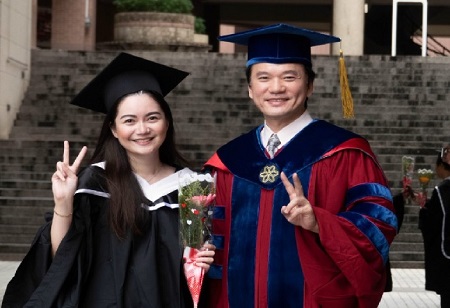National Taiwan Normal University (NTNU) has revealed plans to launch an entirely English-taught bachelor's degree program aimed at attracting foreign students and individuals with interdisciplinary skills. The College of International Studies and Social Sciences at NTNU will initiate a fully English undergraduate program in Global Studies starting in August of the current year. This initiative aims to attract international students and develop individuals with interdisciplinary expertise in humanities and society, marking the first-ever all-English bachelor's degree program in the university's history. NTNU stated that the Office of Academic Affairs has submitted proposals for program additions and adjustments, as well as enrollment quotas for the 2024 academic year, and these proposals have received approval from the Ministry of Education.
NTNU intends to enroll a total of 4,159 students, including 1,708 undergraduates, 1,464 master's students, 208 doctoral students, and 779 students in the in-service master's degree program. Aligned with Taiwan's Bilingual 2030 policy and recognizing the nation's strategic significance in engaging with Asia and the global community, the college will establish the "Undergraduate Program of Global Studies" to attract international students. Utilizing a fully English and diversified teaching approach, the program seeks to offer participants a "comprehensive understanding of Taiwan, Asian societies, and a global perspective". Additionally, it aims to cultivate the development of "intercultural communication abilities".
According to NTNU, Dean Lai Chih-Chien of the College of International Studies and Social Sciences emphasized that globalization, intricately tied to the United Nations sustainable development goals, is an ongoing trend. Lai outlined that the Global Studies program will cover four main study areas: Global Politics and Economics, International Business and Innovation Development, Inter-Cultural Communication, and Society and Sustainability. The program aims to foster students' communication and coordination skills necessary for addressing multicultural challenges and global interdisciplinary development. Regarding potential career paths, Lai mentioned that upon graduation, students can pursue opportunities in the public, private, or voluntary sectors. In the public sector, they may aspire to engage with Taiwan's overseas offices.

